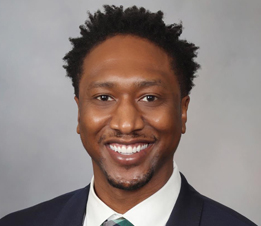Frozen Shoulder

Frozen Shoulder Specialist
Frozen shoulder usually affects individuals between the ages of 40 to 60 causing pain and loss of motion in the shoulder joint. Frozen shoulder specialist, Dr. Kelechi Okoroha provides diagnosis and individualized non-surgical and surgical management for frozen shoulder in Minneapolis. Contact Dr. Okoroha’s team for an appointment today!
What is Frozen Shoulder?
Frozen shoulder, also called adhesive capsulitis, is a condition characterized by pain and loss of motion in the shoulder joint. It is more common in older adults aged between 40 and 60 years and is more common in women than men.
Causes of Frozen Shoulder
Frozen shoulder is caused by the inflammation of the ligaments holding the shoulder bones to each other. The shoulder capsule becomes thick, tight and the stiff bands of tissue called adhesions may develop. Individuals with a shoulder injury, shoulder surgeries, shoulder immobilized for a longer period, other disease conditions such as diabetes, hypothyroidism, hyperthyroidism, Parkinson’s disease, and cardiac diseases are at risk of developing frozen shoulder.
When frozen shoulder is suspected, it is important to schedule an orthopedic consultation for proper examination and care. Dr. Kelechi Okoroha is a frozen shoulder specialist who provides detailed examination and care for patients with frozen shoulder in Minneapolis, Royal Oak, Sterling Heights, Bloomfield Hills, Dearborn, Minnesota and beyond.
Symptoms of Frozen Shoulder
Frozen shoulder may cause pain, stiffness and limit the movements of the shoulder.
Diagnosis of Frozen Shoulder
To diagnose frozen shoulder, Dr. Okoroha will review your presenting symptoms, perform a thorough physical examination and order radiological diagnostic procedures such as X-rays or MRI scans.
Treatment Options for Frozen Shoulder
After careful review of your history and examination, Dr. Okoroha will provide an individualized treatment plan to help you return to your normal function.
Conservative Treatments for Frozen Shoulder
Conservative treatment options include:
- Non-steroidal anti-inflammatory drugs and steroid injections to relieve pain
- Physical therapy to improve your range of motion
- Heat application to reduce pain
Surgery for Frozen Shoulder
Dr. Okoroha may recommend shoulder arthroscopy when the conservative treatment does not work. During surgery, the scar tissue will be removed and tight ligaments, if any, will be dissected. Following surgery, physical therapy will be advised to bring a full range of motion and strengthen the muscles.
If you have experienced frozen shoulder, please contact Dr. Kelechi Okoroha, orthopedic shoulder specialist treating patients in Minneapolis, St. Paul, Rochester, Eden Prairie, Minnetonka, Minnesota and beyond.








